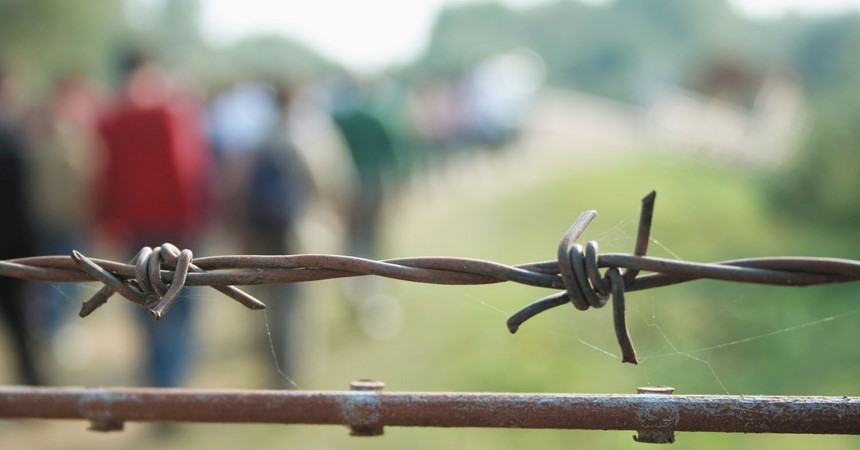Many of the “year in review” articles published at the end of 2016 looked back at the previous twelve months with a mix of emotions, predominantly bewilderment and horror. The Syrian civil war continued, in its sixth year, to dominate headlines, and an unprecedented number of terrorist attacks was planned, foiled or carried out in European countries. Brexit and Donald Trump’s victory in the US presidential election were seismic political shocks that will continue to reverberate around the globe in the years ahead. In Austria, a far-right candidate came within striking distance of winning the presidency. As political pundits and social commentators now debate heightened xenophobia, racism and the rise of demagogues, there seems little doubt that the world is facing a new era of unpredictability and instability.
The election of Trump has raised serious questions about the direction of US foreign and domestic policy and the attendant impact on the world. During the campaign, Trump promised to curb the resettlement of Syrians to the US, build a wall to keep out Mexicans and block the immigration of Muslims altogether. The US is currently the most generous refugee resettlement country in the world and the largest donor to the United Nations’ refugee agency. Will this continue to be the case during a Trump presidency?
The shockwaves are being felt on the other side of the world as anxious refugees on Nauru and Manus Island pray that the recently announced resettlement deal between Australia and the US survives the incoming administration. However, even if the deal goes through for the 1,600 refugees on those islands, what outcomes are there for the remaining 3.5 million refugees stranded in the Asia Pacific region?
What are the alternatives to Australia’s ‘stop the boats’ policy and offshore-processing regime? What would it look like if states in the region were to co-operate and share responsibility (rather than evade it) in their efforts to find solutions for refugees?
At its core, a regional protection framework would address the legal protections granted to refugees as they move through the region, and would acknowledge that onward movement to countries such as Australia usually results from the lack of protection in transit countries like Thailand, Malaysia and Indonesia.
Refugees would be recognised as distinct from other migrants and granted safe entry to countries of asylum. A key component to such a regional framework would be a standardised Refugee Status Determination (RSD) procedure across the region that is fair, transparent and efficient. Special support and procedures should be offered to particularly vulnerable groups such an unaccompanied minors, stateless people or survivors of human trafficking.
Refugees would be screened, registered and issued with legal documents to prevent their detention as “illegal migrants”. They would be issued temporary work permits so they can support themselves while their claims are being processed and granted access to healthcare and education for their children. For those unable to work, welfare provisions should be made so that their basic needs are met.
Funding for the provision of vital services such as healthcare, psychosocial support, legal assistance and education should be increased, allowing civil society to play a role in strengthening refugee protection in host and transit countries. This would help to stabilise populations and reduce the need for refugees to use people smugglers.
Crucially, a regional protection framework would provide durable solutions for those that require them. Ideally, resettlement countries such as the US, Canada and Australia would consider increasing their quotas for humanitarian visas and work towards decreasing the waiting time for resettlement for those in transit countries.
Incentives must be found for host and transit countries in the region to allow refugees to settle permanently and to comply with international standards of protection.
While regional mechanisms such as the Bali Process and the Association of Southeast Asian Nations (ASEAN) have stalled in their efforts to develop a regional framework, there have been some positive developments on the global stage.
The UN’s Global Refugee Summit on 19 September 2016 resulted in the so-called New York Declaration in which 194 States declared their global solidarity with refugees and migrants, reaffirmed their obligations to respect their human rights and pledged support to those countries affected by large movements of refugees and migrants.
States will spend the next two years negotiating a Comprehensive Refugee Response (CRR) Framework to be applied in response to large-scale refugee influxes and protracted situations. This will be broader than a typical refugee response, involving a range of stakeholders including local and national authorities, humanitarian and development actors, the private sector and civil society.
The UNHCR has called the Global Refugee summit a “game changer” for refugee and migrant protection. Whether it is or not will depend on political leaders being willing to face potential voter backlash − as has been recently witnessed in Germany – and heed German Chancellor Angela Merkel's call to action,"Wir schaffen das," ("we can do this"), by committing to genuine efforts to collaborate and share resources. This will need political will and an ability to articulate a political vision that goes beyond short-term national interests.
As leaders make grand promises on the world stage, it’s equally important that communities at the grassroots work hard to create new narratives about refugees and migrants, narratives that are framed in terms of shared values and counter the fear-driven rhetoric of security and exclusion. Crucially, they must be narratives and stories that resonate with a broader group in society in order to mobilise a critical mass of people who will demand more of our political leaders and hold them to account for their lofty promises on the world stage. We all need to heed Chancellor Merkel’s call to action, and say to ourselves and one another, “We can do this.”
Oliver White is former Assistant Director, Jesuit Refugee Service. To read earlier articles in this series, visit mnnews.























































































